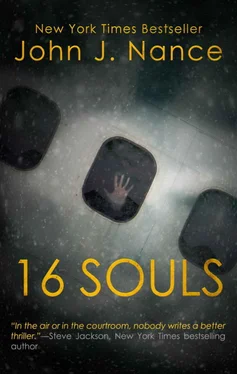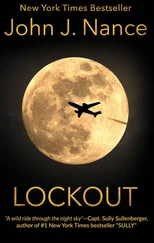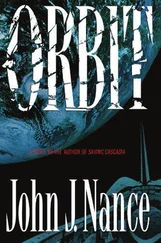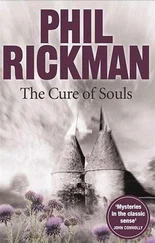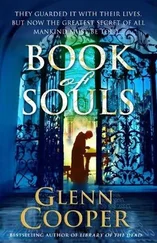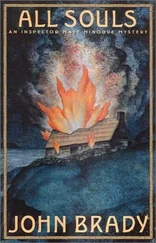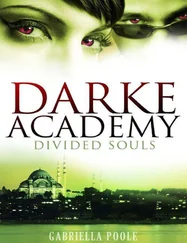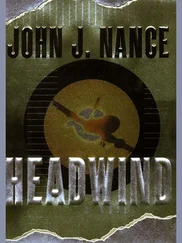She shook it off and looked back at the senior lawyer.
“So, Joel, other than fighting like hell over the wording of the jury instructions and preparing a closing argument that will have all twelve of them physically attacking Richardson with pitchforks, what else would you advise?”
“The ultimate fallback in a criminal case, Judith. Go for reasonable doubt. It was always my north star through decades of these types of battles. Plant reasonable doubt like a kudzu vine. Kudzu grows about a foot a day, by the way, and that’s how fast inserting real lingering doubt into their thinking will grow, if Richardson doesn’t kill it with simplicity.”
“Kudzu? Really?”
“It’s a good example. Convince them that Richardson has failed to meet his burden. Convince them he’s failed to prove every element of the charge beyond a reasonable doubt. Reasonable doubt can also be compared to a virus. If it can grow past a juror’s mental immune system and outlast any anti-viral attack by the prosecution, when it comes time to vote in that jury room, it can save the day. One vote to acquit is the last line of defense.”
“I love your analogies.”
“In more traditional terms, my dear, pivot everything on the fact that there is no way that anyone could accept, beyond a reasonable doubt, Richardson’s argument that to knowingly cause the death of another includes an airline pilot who tried everything he knew to save his passengers, and lost a few nevertheless. Couple that with the universality of captain’s authority in an emergency and Richardson will have a steep hill to climb to overcome it and get all twelve past reasonable doubt. He wants to use simplicity? Give it right back to him. The very nature of the captain’s decisional process instills not just reasonable, but severe doubt that his actions could ever meet the language and the intent of that damned law that defines second degree murder.”
“That’s it?” she asked, standing.
“In the final analysis, that’s all you’ve got, kiddo.”
Present Day — September 13 –Day Six of the trial
Courtroom 5D, Lindsey-Flanigan Courthouse, Denver
“Ready, Captain?”
For the previous hour, in a commandeered hotel meeting room, Judith had been carefully and calmly running through the basics of what Marty could expect on the stand when court resumed in less than an hour. There had been one more on the defense list but it was going to be impossible to get that witness to court in time, and Judith had made the unusual decision to go ahead with Marty’s testimony. It was a risk, Joel had warned, to let a defendant testify in the first place, and more so when his voice wasn’t the last one heard from the witness stand. But the risk was not without calculation. Marty’s calm demeanor was both reassuring and disturbing, and the question kept echoing through her mind of whether he was really that composed, or doing a great job of acting? The weekend recess had been taken up with constant study for Judith, and mostly sleep and a few workouts in the hotel gym for Marty.
“Am I ready?” Marty echoed. He nodded with a tight smile, and a big hand reached out to gently touch her shoulder.
“Thank you, Judith. However this debacle turns out.”
She resisted the urge to repeat her warnings about how totally critical it was for him not to get angry or agitated. He might perceive the repeated warning as a lack of confidence.
“You’re welcome! Now let’s go do this.”
With the rest of his legal team reassembled in the courtroom an hour later, Judith called him to the stand, and Marty walked forward with calm confidence, his uniform pressed and sharp, his captain’s hat with the gold braid on the visor left on the defense table, yet clearly visible to the jurors.
Judith glanced at the twelve jurors once again, wondering if they were really as unsophisticated as the jury consultants believed. She had struggled in her opening statement to find the right words to plant in their minds how outrageous was the injustice being visited on this good man. Time would tell if they had heard her. And, as Joel had warned, the statute seemed deceptively clear, and she would have to meet Richardson’s strategy head-on.
Marty Mitchell was right, she mused. It’s a shameful game. But occasionally justice is the imperfect byproduct.
From the witness stand, Marty had fully anticipated that seeing Grant Richardson at the prosecution table front and center was going to be a struggle; and he knew that watching the smarmy bastard sitting back casually with such a smug and self-confident look could upset him. But at Judith’s urging, he’d been preparing himself for this moment for weeks, and an inner calm had genuinely replaced his intense hatred of the man. He looked at Richardson now as somewhat pathetic, especially since the DA had nothing more important to do than personally torture a surviving airline pilot.
Marty could recall almost word for word Richardson’s opening statement, as well as all his questions of his witnesses during the first days of the trial. The DA had been smart in avoiding the vilification of the captain of Regal 12. Instead, he’d cast the accident as a sad series of tragic mistakes, one of which had to be answered with punishment lest people die in the future from another pilot’s negligent and disobedient decisions. Marty knew the jury was curious and not preprogrammed to hate him, and they were being preprogrammed to consider this a simple matter — if A fits B, the only verdict is guilty. He would have to connect with each of them on a profoundly human level to get them to look beyond. In pilots’ lexicon, it was the ultimate checkride with his freedom in the balance. The good part of that, he concluded, was that Marty Mitchell had always been ice-water steady in checkrides, even when the check pilot was an unspeakable ass working relentlessly to rattle him.
For the entire morning and after the lunch recess, Judith followed the usual introduction to the jury by guiding Marty through the details of the flight, the preflight discussion with the dispatcher, the collision and airborne calls with Butterfield, the rapid-fire decisions that had to be made in an unprecedented emergency, and the agony of pushing back against voices that were telling him to condemn the sixteen people on his wing to death.
And finally, as promised, she had turned and asked the questions he had been dying to answer all day, giving him the opening to explain without interruption the last act of the flight.”
“Captain, your first officer testified that when you started a missed approach to Runway Seven, you were low on fuel and the runway was in sight?”
“Yes.”
“Why did you elect to go around?”
“Because,” he said, “I suddenly had a better idea, one that had been staring me in the face as we came down final for Runway Seven, but one I hadn’t figured out until about two hundred feet above.”
“By a ‘better idea,’ what do you mean?”
“One that wouldn’t kill anyone. A way of getting all of us down safely, not just the passengers aboard my Boeing.”
“Would you please describe to the jury what happened from the moment you decided to go around, to the crash?”
Marty Mitchell nodded and took a long look around before beginning, and, to his amazement, the courtroom and all the sounds and sights within began to recede as he commenced speaking, until once again it was the snowy night of January 21st and he was in the cockpit again, the snow streaking past the windscreen, the same fear roiling his stomach as they streaked down final approach far too fast, the remains of Mountaineer Flight 2612 still hanging onto the right wing. He could hear Ryan’s voice, just as before, when Marty ordered him to standby for landing gear extension.
Читать дальше
